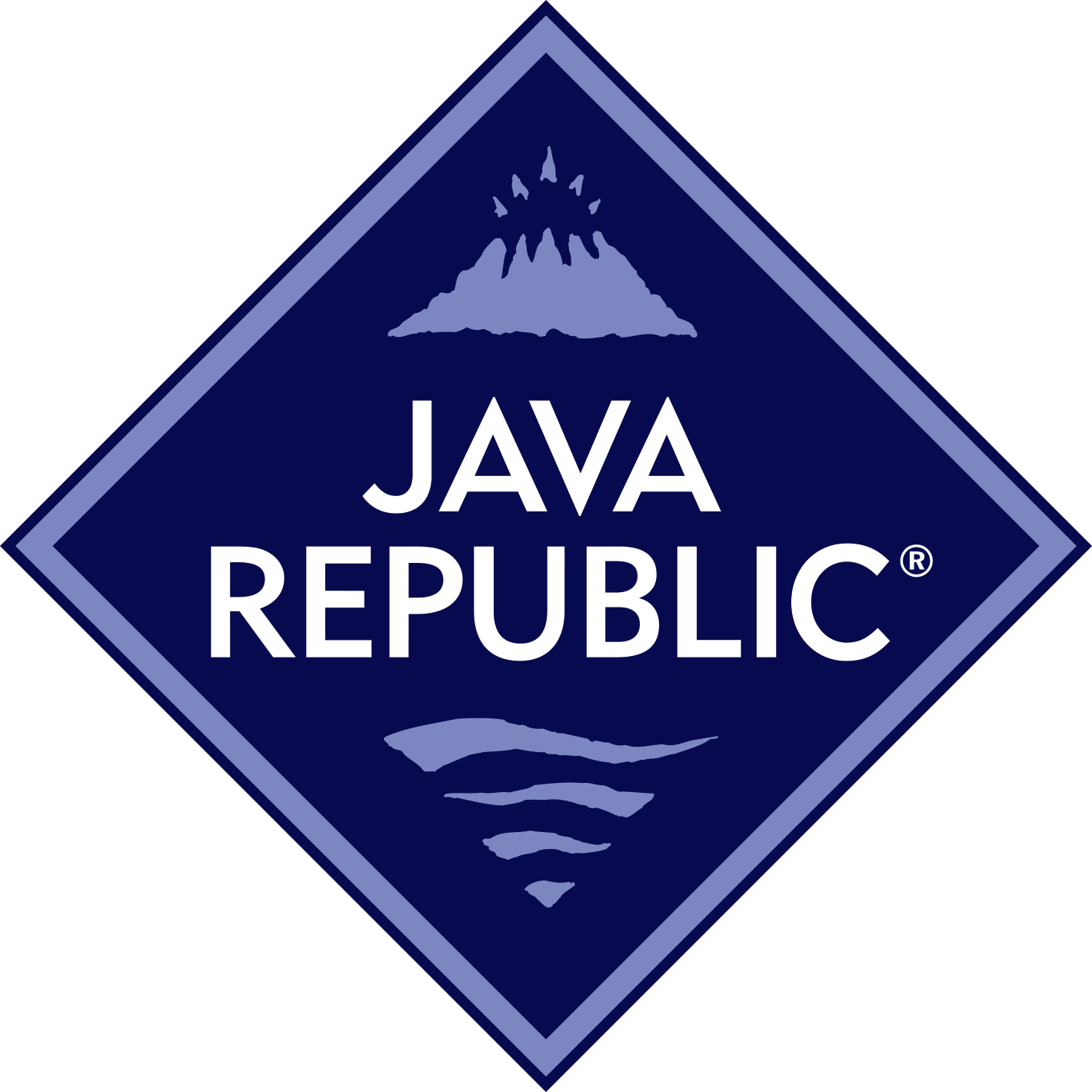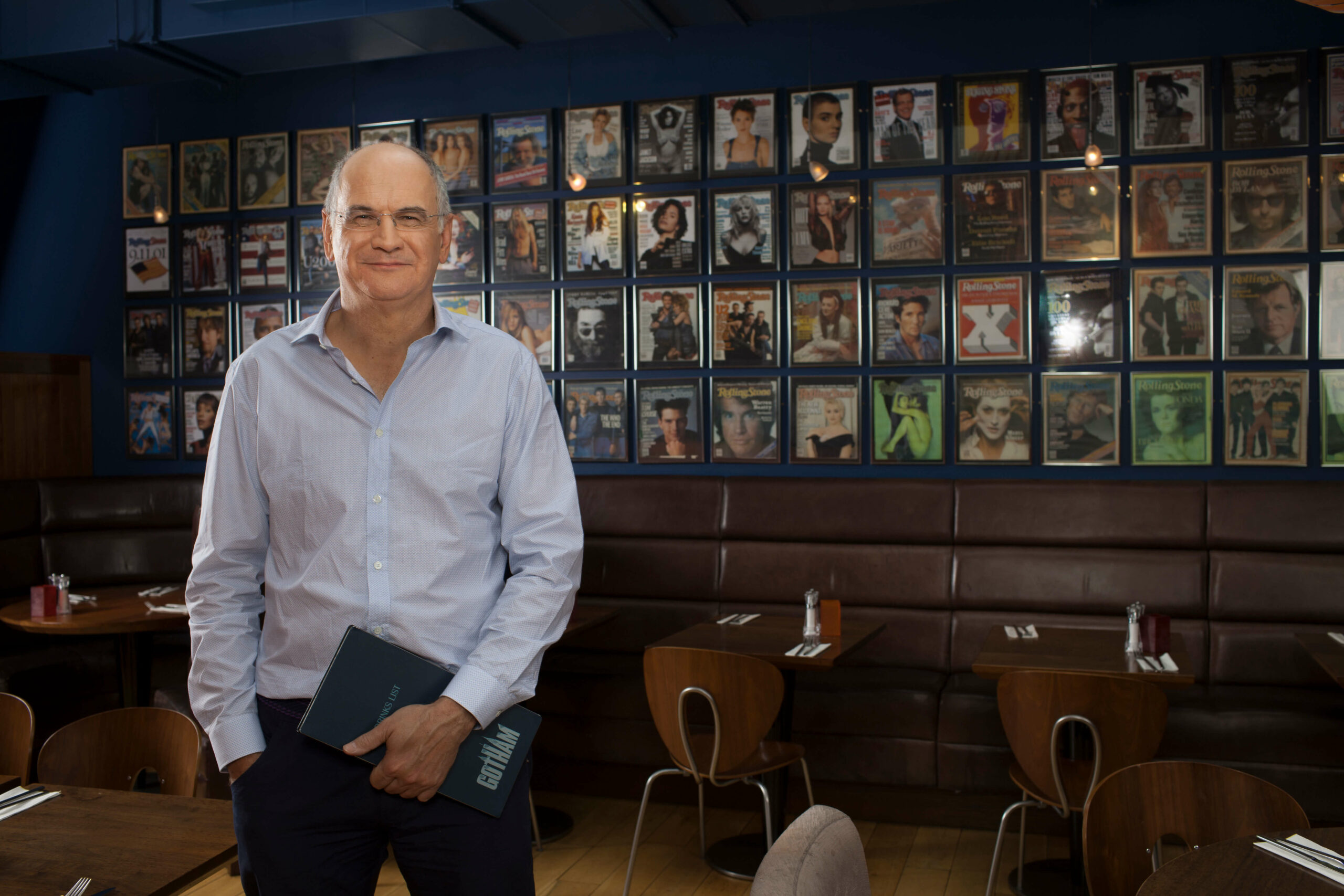Coffee Conversations
As part of our promise to share insights and opinions with our customers, we’ve started a series called Coffee Conversations. It presents our founder, David McKernan, in conversation with people who have expertise and experience to share.
David Barry runs a trio of highly successful casual dining restaurants in Dublin: Independent Pizza, Gotham Café, and Gotham South.
McKernan: You’ve been running three fantastically successful restaurants for over 30 years and we’ve known each other all that time. Gotham Café on South Anne Street was one of the first places to serve our coffee. But tell me, how did a Trinity science graduate like you end up in the food business?
Barry: When I left college in the 1980s there was no real work in Ireland. So, myself and a friend were actively looking for different business ideas. We pursued various avenues, then decided to open a pizza restaurant. When I was in America, as a student, I just really adored pizza and I couldn’t understand why you couldn’t get pizza worth the name in Ireland.
McKernan: What was the start-up cost?
Barry: I would say about sixty thousand pounds. It was shoestring at the time: We were starting from absolute zero. We also had no experience in the food business. So, we were learning on the job, and we had to learn quick. Like most entrepreneurs, we didn’t pay ourselves for quite some time. During that time, I lived above the restaurant in Drumcondra, in a place that initially didn’t even have a shower or a toilet. I used to have to use the customer toilets. But you’ll do anything when you’re starting.
McKernan: But within a year it was a success.
Barry: Yes. The rate of growth was fantastic. I remember my father – who helped us out a bit at the beginning – he used to laugh, because every week I came home and said: “You know, we had a record week!” and then the next week: “We had another record week!” It was unbelievable.
McKernan: What’s your view on the role of home deliveries for restaurants like yours?
Barry: When we started, we deliberately didn’t offer delivery. We felt that our product didn’t really travel all that well, because of our style of pizza dough. Also, the idea of getting involved with recruiting and retaining drivers who would only be busy some of the time really wasn’t appealing. And we were so busy! Our focus was to meet the demand for our eat-in business. In recent years, services like Deliveroo and Just Eat have taken away the headache of the drivers. That makes delivery services a more appealing scenario from a restaurant’s point of view. But it’s very expensive. The customer doesn’t understand how much the restaurant is paying to Deliveroo or Just Eat. But it is a nice add-on to your business. We’ve been impressed by the rate of growth they gave us.
McKernan: You met your wife in the business – is it easy to work together? And would you encourage your own children to go into the restaurant business?
Barry: There are pluses and minuses. The hospitality business is a tough business in terms of the hours that you work. And you work when other people are socializing – so it’s not that unusual for restaurateurs to end up in a personal relationship with somebody in the business. But we try to take separate roles. And we’ve always avoided working together on the floor of one of the restaurants.
In terms of the kids, this business is completely different to what it was like when I started out. So, would I encourage them into it? I wouldn’t discourage them – but I would certainly flag them on the implications of working in the hospitality trade. On the plus side, there’s no comparison to the frequency that Irish people eat out compared to the mid-eighties. That makes it possible to run the business in a different way compared to when we started. So, I wouldn’t rule out my kids working in this trade, but I wouldn’t
be pushing them into it either.
McKernan: Yours is a long-running business – what do you do to stay relevant and appealing
for customers?
Barry: We travel quite a bit, we’re always looking for ideas. And not just in restaurants – it might be bars, it might be hotels. You can always pick up an idea, twist it, and use it in a different way. I’m a strong believer that you can’t stand still in business. If you stand still you’re losing your position. Customers like reinvention. They like things to change. Maybe, subconsciously, they think they don’t – some people aren’t happy if their favourite dish is no longer on the menu. But if you don’t change, they get bored – and then they go to the new, hipper place down the road. So, you must keep moving, and you must keep evolving. That’s vital. You’ve heard me say this before, but I always think that the adage: “If it ain’t broke don’t fix it” is just so wrong when it comes to business. You have to change. And change is not just for the customers’ benefit, but also for staff. Because the staff get bored and the staff want to develop.
And you want them to develop too, but you want them to stay with you as they do.
McKernan: Where do you go to get the most inspiration in the food business?
Barry: I’m always going to say New York. That’s why you’re sitting in a restaurant called Gotham. New York has just so many restaurants and there are always new things happening. If food trends don’t happen first in New York – and they usually do – they get to New York second. So, you’re always going to be inspired by what you see there.
McKernan: What are the other challenges restaurant businesses face today? I’m seeing a return to boom-levels of rent and fit-out costs…
Barry: Yes, but the foremost challenge facing the restaurant industry is staffing. In particular, the chef side of the industry has a problem. There’s a perception that the hours demanded of chefs are off the wall. In some places, they’re right – and that means it’s not an attractive career. As we get nearer to full employment, the only way we’re going to get chefs is to bring them in from abroad. And I think the industry needs to really sort that out. It’s interesting to see that a lot of the new restaurants, especially in Dublin, are chef led. And they all seem to have gone down the road of only opening five days a week. That means they can give their team a proper life outside work, and they can have a smaller team. That model needs a viable rent roll – we couldn’t be closed for two days a week in the city centre. But I think that’s a side issue. People want to be able to eat out regularly, not just on a special occasion. If the demand is going to be there, how are we going to staff that demand?
McKernan: If I’m being honest: I’ve been in a lot of kitchens. I’ve seen what chefs have to do. Why would anyone want to be a chef?
Barry: Well I think it’s a vocation. You have to be passionate about food. But you know what? There’s a great buzz in the restaurant business. There’s a real satisfaction that you can only get from a well-executed service. But if you don’t have a passion for it, if it’s not a vocation for you, then you’re going to struggle.
McKernan: Last question: What’s been your experience of the growth and the development of coffee in your 30 years of trading? How important is coffee to your customers today?
Barry: It’s so important, and it has changed so much. When we started out, it was exotic to have a filtered Bewley’s coffee as opposed to having Nescafé instant coffee. Then the younger generation saw what great coffee was like in their travels, be it to Australia or to North America. They came to expect it, and to demand a very high standard. These days, if you’re not providing very high-quality espresso-based coffees, you’re just going to lose business.
Below is an audio recording of the full interview.




